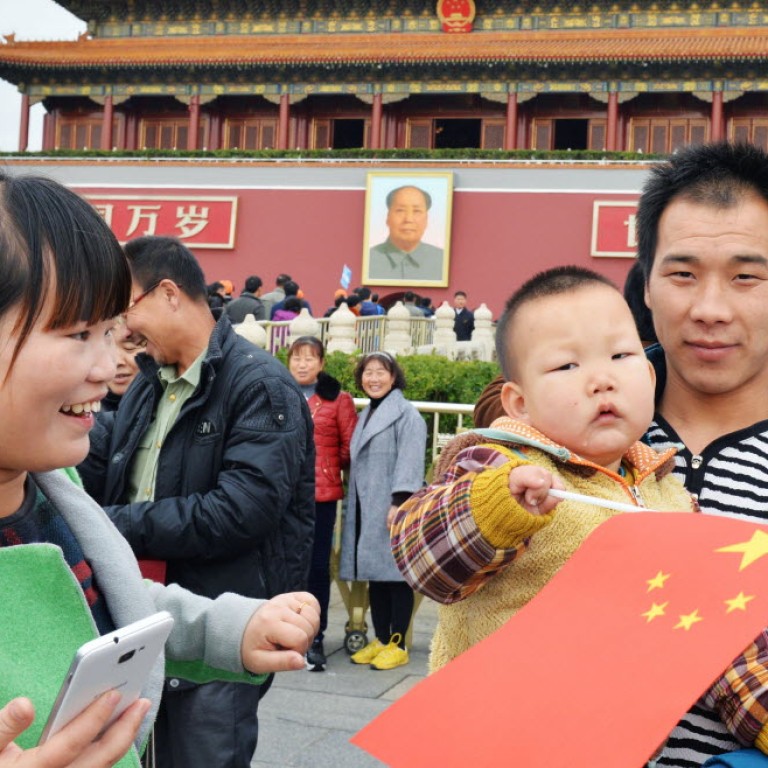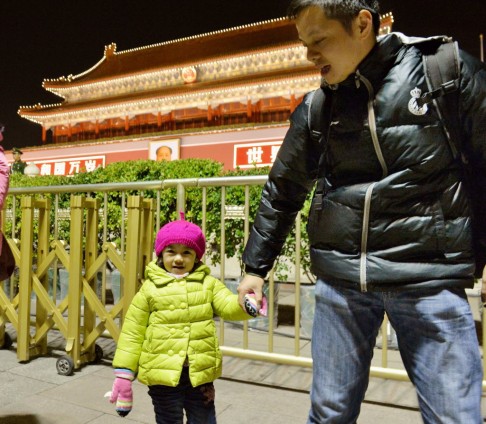
Hong Kong doctors urged to use new trade deal to cash in on two-child policy
Beijing's two-child policy and latest trade pact will create openings across the border, but red tape is just one of the pitfalls for medics eyeing a move
But some doctors warn that those who intend to set up Hong Kong-style clinics and hospitals on the mainland should beware of obstacles such as the stringent licensing requirements and the problems caused by recruiting local doctors.
Former Hospital Authority chairman Anthony Wu Ting-yuk, an adviser to the National Health and Family Planning Commission, issued the advice before last week's agreement between the Hong Kong and mainland governments to tear down more cross-trade barriers under the latest Closer Economic Partnership Arrangement (Cepa).
"From a business perspective, the two-child policy will create a huge market for obstetric care and paediatrics services," Wu told the , adding that healthcare providers from around the world were vying to capture a slice of China's medical market.
"Those who are interested in venturing into the mainland's health care market can consider opening up a specialist hospital for gynaecology and childbirth services, as well as a children's hospital."

Locally registered medical practitioners can provide short-term services on the mainland for up to three years under a renewable licence without the need to obtain mainland qualifications.
As of the end of last month, 29 certificates had been issued to local service suppliers to provide medical and dental services.
However, some professionals remain sceptical about setting up shop across the border under the free trade deal, despite the latest liberalisation measures.
Dr Paul Shea Tat-ming, a council member of the Hong Kong Medical Association, said the preferential measures under Cepa would have no impact on individual practitioners like himself as far as he knew.
"This is a game for the big medical corporations only who have set their sights on the mainland market. They can easily find mainland partners who know how to make things easier for them," he said.
"For individual medical practitioners without any mainland connections, the Cepa measures are meaningless and unattractive because they need to overcome many barriers to open their own clinics, such as obtaining many different licences for the clinic's operation, and the lack of insurance coverage. The risk is high."
Shea - who recently visited some medical institutions in Zhejiang province along with nine association members under the commission's invitation - said even some Zhejiang health officials were not upbeat about the impact of the two-child policy on the province's population growth.
"For wealthy mainland cities, they estimate that only two out of 10 people would like to have two children - a big difference from those living in rural villages, who of course welcome this policy change," he said.
Dr Donald Li Kwok-tung, president of the Hong Kong Academy of Medicine - who will jump on the Cepa bandwagon by launching an outpatient clinic in Shanghai next year with UMP Healthcare - admitted it was difficult for local doctors to run outpatient clinics on the mainland as they needed to obtain different permits and licences for operation.

"The central government sets out the opening-up policies, but it depends on the provincial and county governments for the enforcement of the liberalisation measures. You need to go through a lot of red tape."
However, Li had high hopes that the two-child policy would rejuvenate market demand, advising medical aspirants to target faraway markets like Shanghai as wealthy cities desire quality and convenient medical services while the residents there cannot easily come to Hong Kong.
Dr Chow Pak-chin, the association's vice-chairman, also pointed out that it was difficult for local health care providers to hire local doctors to work at their Hong Kong-style clinics and hospitals.
"Many Hong Kong doctors are unwilling to work on the mainland. To them it's like emigration. They have a lot of concerns, like the education arrangement for their kids, etc. They feel like uprooting themselves," he said.
"But if these institutions hire mainland doctors, they will lose their 'Hong Kong' uniqueness and become just an ordinary mainland hospital."
C-Mer (Shenzhen) Dennis Lam Eye Hospital, the first wholly Hong Kong-owned hospital founded by eye specialist Dennis Lam Shun-chiu in Shenzhen, is regarded as a success under Cepa.
Lam's eye hospital was reportedly able to balance the books after the first 10 months of operation. However, two wholly Hong Kong-owned clinics in Shenzhen reportedly closed early this year.

